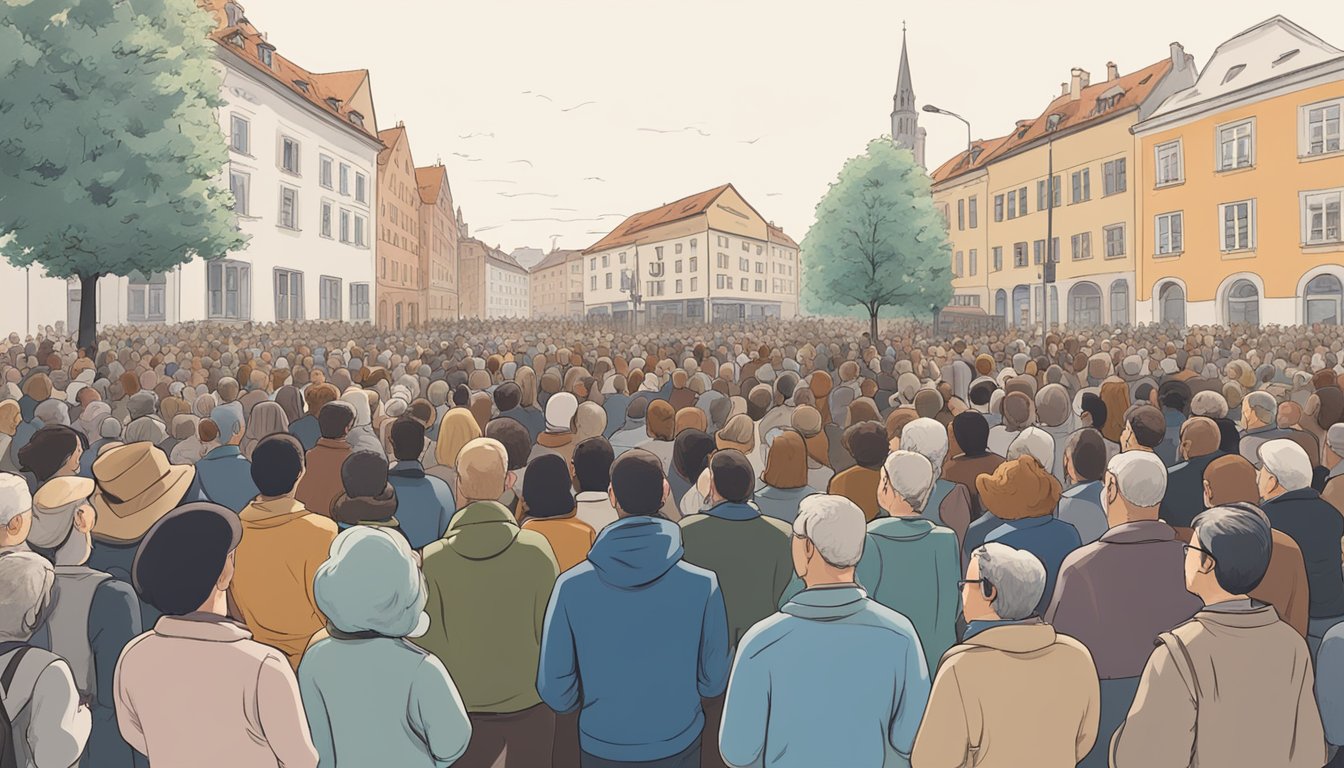Don’t Miss Out On This Unique Astrological Opportunity
Are you tired of spinning your wheels and getting nowhere? Simply put, you’re out of sync: you’re out of alignment with your astral configuration.
But: there’s a kind of map that can help you reclaim your alignment. Think of it as your own personal blueprint to success and happiness: a blueprint that will help you live your most amazing life.
Get started here.
During a recent security conference in Munich, U.S. Vice-President JD Vance brought attention to a concerning case that spotlights the state of free speech in the UK.
He spoke about Adam Smith-Connor, a 51-year-old Army veteran and father of two, who found himself in serious legal trouble for simply engaging in silent prayer close to an abortion clinic in Bournemouth.
Legal Troubles for Silent Prayer
Last October, Smith-Connor was convicted for infringing on a designated buffer zone around the clinic.
His ‘offense’—standing quietly for three minutes—led to a conditional discharge of two years and a hefty fine of £9,000.
Vance characterized this situation as a worrisome indication of a decline in conscience rights across the UK, arguing that such laws pose a significant threat to the core freedoms of religious individuals.
In his address, Vance depicted Smith-Connor’s behavior as innocuous, noting that the veteran wasn’t obstructing anyone nor interacting with passersby during his brief moment of reflection.
Expressing his gratitude, Smith-Connor, who is currently contesting his conviction, thanked Vance for shedding light on his predicament among prominent global leaders.
Concerns Over Free Speech
Smith-Connor firmly believes that no one should face criminal sanctions for expressing their religious thoughts or beliefs in silence.
Legal counsel Jeremiah Igunnubole, representing Smith-Connor through ADF International, criticized governmental practices that intrusively monitor personal beliefs and thoughts within these anti-protest zones.
He pointed out the absurdity of suppressing peaceful religious expressions while more pressing crimes continue unabated.
Igunnubole further warned that such restrictions set a dangerous precedent for broader limitations on free speech, both in public spaces and online.
He drew parallels to EU social media regulations, which have faced criticism for potentially curbing dissenting opinions under the guise of combating misinformation.
By normalizing the suppression of silent prayer, he argued, authorities risk creating a culture where personal convictions can be policed without justification.
These developments raise concerns about the broader implications for individual freedoms, as similar justifications could be used to silence differing viewpoints in various aspects of society.
For instance, critics argue that just as authorities police silent prayer, some colleges suppress academic debate by discouraging discussions that challenge prevailing ideologies.
If such trends continue, the fundamental right to express one’s beliefs—whether in public squares or academic institutions—may face unprecedented erosion.
Such restrictions not only undermine democratic principles but also create an environment where individuals may hesitate to express deeply held beliefs for fear of repercussions.
This growing trend has led some to question whether policies like the Vatican guidelines on same-sex candidates could one day face similar scrutiny, with religious institutions being pressured to conform to broader societal norms.
If authorities continue down this path, the line between protecting public interests and unlawfully restricting personal freedoms may become increasingly blurred.
This uneasy trajectory raises fundamental questions about the limits of state power in regulating personal beliefs and expressions.
As governments expand their oversight, some fear that even long-standing religious doctrines, such as the Vatican guidelines on same-sex candidates, could become battlegrounds for broader ideological conflicts.
The erosion of these freedoms risks setting a precedent where personal convictions are not only scrutinized but increasingly dictated by shifting political and social pressures.
Igunnubole raised an alarm over what he considers a dangerous double standard in law enforcement that could undermine free speech and individual thought.
He expressed his appreciation for Vance’s remarks, seeing them as a vital reminder for the UK government to recommit to upholding fundamental human rights.
Igunnubole warned that ignoring these concerns could set a troubling precedent, where certain viewpoints are unfairly censored under the guise of maintaining public order.
He pointed to JD Vance’s claims about Europe as an example of how political discourse is being increasingly policed in ways that stifle open debate.
According to him, safeguarding free expression requires a consistent application of the law, free from ideological bias.
Ongoing Struggle for Freedoms
In an era where the boundaries of expression seem increasingly restricted, the tale of Adam Smith-Connor stands as a pivotal example of the ongoing struggle for basic freedoms that many take for granted.
Source: Christian Today



